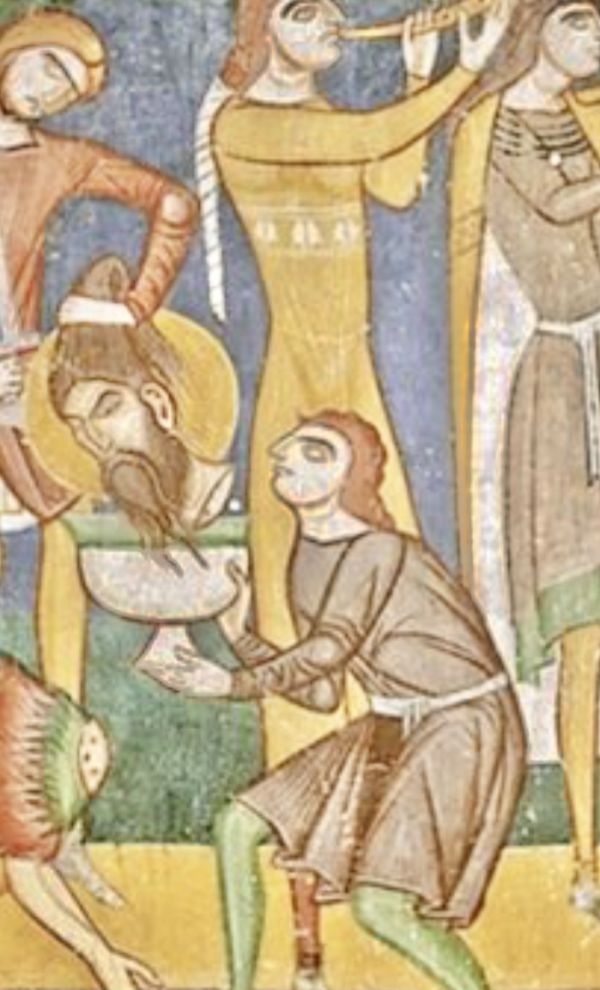(Mk 6:17-29)
The question «Jesus, Who is he?» grows throughout the Mk’s Gospel, up to the answer of the centurion under the Cross (Mk 15:39).
The assessment of the opinions of the people (vv. 14-16) suggests that even around the first assemblies of believers someone tried to understand Christ starting from what was already known.
Not a few wished to understand his Person on the basis of criteria drawn from the Scriptures or from the Oral Tradition of the Chosen People; from ancient beliefs and suggestions - even superstitious (as in the case of Herod).
But the Herald of God was not a purifier of the Temple, nor was He a simple healer of dated religiosity, of domesticated cultural ideas. Not even one of the many "reformers"... all in all conformists.
He overturns the hopes of the people, thus disturbing any school of thought; in particular, those who hold the exclusivity.
When feel a danger, those who are shrouded in luster and power become brazen and willing to do any violence, even for a false point of honor.
Tyrants always scoff at the isolated, uncomfortable and defenseless.
But leaders and powerful are also cowards: they do not intend to lose face in front of the allies of their immoderate and uncontrolled environment, cloaked in exemptions.
Josephus [Flavius] reports that John was in prison for fear of a popular uprising - evaluating that it was good for him to act early.
The assassination plot was occasional.
The brave one who denounces abuses is cut off, but the Voice of his martyrdom is no longer silent.
For this reason the episode does not lead Jesus to greater prudence. Once an Envoy is killed, another greater and more incisive takes over: the last of the Prophets, the Son of God.
It seemed absurd that someone in that society dared to break the conspiratorial wall that guaranteed the troublemakers to consider themselves untouchable.
Faced with the blackmail [without too many compliments] of the privileged who had control of every social and cultural class, it seemed impossible to start a new path, or to say and do anything that was not aligned.
John and Jesus challenge the status quo and attract upon themselves the vengeance of those who try to perpetuate the prerogatives of the ancient hierarchical cosmos, and the anger of those who are exposed in their hypocrisy.
This is the real difficulty encountered in the proclamation of the new Kingdom in the world. His contemptuous refusal and every attempted murder will be a litmus test of our noble critical frankness, the ‘revelation’ of which will run parallel the Two.
The Master stood up in defense of conscience and of the divine law itself, against the opportunist authorities, which he challenged openly.
Even today he asks for courage not to surrender in the face of corruption, evil, the current mentality; to be different in the way of thinking, speaking, choosing and acting.
Not listened to, derided, opposed by many courtiers, the children of God bear witness to the Truth, paying in person: perfect Joy.
Authentic Fullness.
To internalize and live the message:
Who is Jesus according to you and the others?
[Martyrdom of St. John the Baptist, August 29, 2023]












